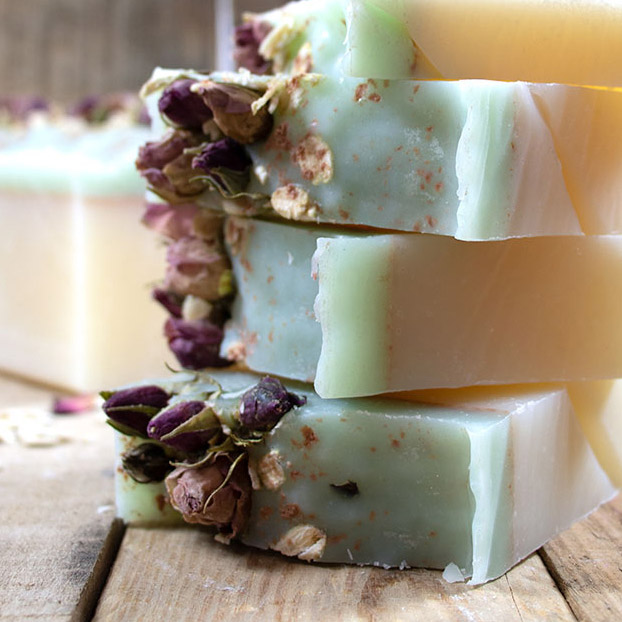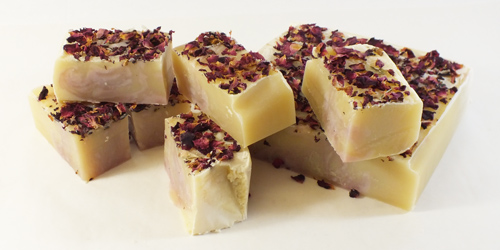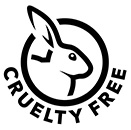Soap Making Information

At the Soap Kitchen we love what is known as the Cold Process method for our soap making, which is often mistakenly known as Cold Pressed. This method uses Lye to chemically react with oils to make soap and as such the soap made in this method is often referred to as Lye Soap.
The phrase 'cold process' is slightly misleading in that the process is not actually cold, although following the initial melting of any solid oils such as coconut and palm oils, no further external heat is needed.
With natural soap making, a chemical reaction takes place. Many people have the picture in their mind that soap is made by endlessly stirring a bubbling mixture in a large pan over heat and although there is a 'hot process' method which might have similarities to this, most books and instructions on how to make soap only cover the 'cold process' method which is by far the easiest and simplest method.

We choose only to use pure vegetable oils in our soaps, although animal fats can be used. One popular animal fat used in many soaps is Beef Tallow, seen on the label as 'sodium tallowate', so any vegetarians amongst you will now be able to spot whether you are happy using your current soap or not.
First Time Soap Makers
Some first-time soap makers are wary of the fact that sodium hydroxide (caustic soda) is used. Please be assured that once chemically reacted with the oil/s in correct proportions, absolutely no caustic properties remain in the soaps. All soaps start out this way, hence the scientific words for the different soaps all beginning with 'Sodium', i.e. sodium cocoate (coconut oil soap).If you've ever wanted to try making soap for yourself, you'll find everything you need here at The Soap Kitchen. You may even want to come to one of our regular soap making courses. For details, go to our 'Courses' page where you can send us your request for information.
Making your own recipes? You'll need the SAP values of all the oils you're likely to use.
Click here to go to our 'Guide to SAP Values' page Buy a good book on Cold Process Soap making. Click here for advice about safety assessing your soaps for sale.





